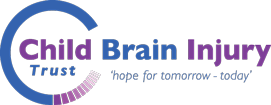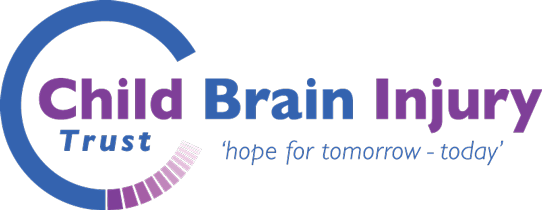By Sharon Machin, ABI Coordinator West Midlands
 The internet can be the most amazing tool which is embedded very much so in our everyday lives – most of us use it every day in our work and personal lives. We have become practised in online team meetings, online school education or learning sessions, use it to gather important research for our work and, on an essential social level, to connect with our families, friends and work colleagues. I know I would be a little lost without it.
The internet can be the most amazing tool which is embedded very much so in our everyday lives – most of us use it every day in our work and personal lives. We have become practised in online team meetings, online school education or learning sessions, use it to gather important research for our work and, on an essential social level, to connect with our families, friends and work colleagues. I know I would be a little lost without it.
The internet is now accessible to most people including young children and young people with the pandemic having fuelled our accessibility. With this, there is recognition that there are limitations in online security that can leave our children and young people exposed to the darker side of the net. As a parent of vulnerable teenagers, myself, I am more than aware of the worries that this brings.
We know that our children and young people with acquired brain injury can have difficulties adjusting to the world around them after ABI, and this world includes adjusting to the world online. The internet seems to add a complexity to this, and for some vulnerable children and young people, in understanding much more of this whole world around us.
The language we use online can be very different to the language we use with face-to-face connections – Emojis, abbreviations and GIFs bring a whole new form of communication, some of which – I admit, I struggle to comprehend and have to ask! And for some children and young people with an ABI, being able to access online platforms helps to aid events from learning, playing, to communicating with others, so the need to mindful, educated and aware helps us to safeguarding our children.
Having worked with families that have real worries and concerns around internet safety and supported first-hand the problems that this causes, I explore in this blogpost what support is available for families to access. I also thought it would be helpful to look at what is being done on a government level to safeguard children and young people online, so some interesting reads about the online Safety Bill below too.
According to internet safety matters, some parental concerns can be around:
- Witnessing harmful content
- Connecting with strangers
- Spending too much time online
- Cyber bullying
- Sexual exploitation
- Grooming
According to the NSPCC:
- Half of ten-year olds now own their own smartphone (Ofcom 2019)
- 70% of 12-15-year-olds now have a social media profile, with Snapchat being the most prominent platform in this age group (Ofcom 2019)
- Children aged 5-15 now spend over 14 hours a week online, just over two hours a day (Ofcom 2019)
What can I do to safeguard my child and/or young person?
We have put together below a list of resources signposting you to access help, support and guidance and to hopefully ‘jargon bust’ the huge range of information out there. Helping our children and young people become aware and recognise the risks themselves is important such as, how to report dangers and awareness of things such as fake news and fake accounts through education. With this in mind, it is equally important to know that whilst there are risks, there are also so very many positives too – connecting with family and friends that are far away is a gift, and one of the huge benefits of using social media and online platforms to connect.
![]()
First, I wanted to show you a picture of some popular social media and internet icons. Can you name all these popular social media icons? Hands up, I have to say that I did not recognise some of them and recognised 12 out of the 25 listed in the picture so I need to learn more from the people that know best. Whilst we are not, by any stretch of the imagination – experts in internet safety, we do know where we can learn more and get information to help us.
My three top tips are;
- Be aware
- Have conversations
- Know where to get support
Be Aware – Being aware of the risks that are associated with internet use
Bullying, inappropriate content, grooming, screen time, radicalisation, exploitation are just some of the risks that we need to safeguard our children and young people from. Knowing what platforms are being used is a good place to start, this includes whilst gaming online too. (Which is another new world).
Internet matters are an online organisation that offers advice and guidance to parents of children and young people and additionally a separate page with support for parents and carers of children with additional needs (SEND) – they do have great advice and support on all that has been talked about so far in this blog. Please do visit them on this link.
Have conversations – Conversations with your children and young people about Internet Safety
Talking to children and young people, using the relevant language to their age, stage and cognitive ability can be a difficult conversation to start. The NSPCC have some great conversation starters and guidance of this to help with the feelings that may arise from conversations. They offer a range of guidance around.
- Online safety tips
- Parental control settings
- Family agreements and activities to start conversations such as word searches
- Learning videos
- Recognising concerns
- Where to go if you are concerned
Cyberbullying and other risks like exploitation and grooming can cause changes in children’s and young person’s behaviour and often, how they present can be the first signal that something just isn’t right. The National Bullying Helpline has some great advice here.
Know where to get support
As well as the above, these next three website are a great source of learning and information.
The internet crime agency child protection command (NCA-CEOP) has an education programme for teenagers call “Think you know” – this offers tips and advice and learning for teenagers on topics such as – before you post, after you post on social media and also offers advice to professions, parents, alongside their child relevant information, from the ages of 4 – 18yrs.
This is a comprehensive list of where to go if the links above don’t have what you are looking for; for example, how and who to report fraud or information or access issues to, information from phone companies and other charities that support children and young people. https://www.parentsprotect.co.uk/internet-safety-links.htm
The above link Includes information on how to access CEREBRA’s helpful booklet on internet safety for children with neurodiverse needs and learning disability, but also can be found separate HERE.
Accessibility of information
Please see the accessibility toolbar on the individual website pages listed for how they provide inclusive access to information. Each website will also be responsible for their own privacy settings, cookies and notices.
A note on the UK GOVERNMENT ONLINE SAFETY BILL
The Online Internet Safety Bill sits within the department of Digital, media, culture and sport and is currently being reviewed, the government have committed to pass this bill to law by spring 2023. In short, the factsheet lays out changes to the way companies hold accountability, how to safeguard and protect children and vulnerable adults. The United Kingdom (UK) covers all four nations: England, Wales, Scotland and Northern Ireland. Variations and each nation weblinks are also below.
There is also a UK council for internet safety, is a good place to find out what is being done to support and influence change in education and other policy making organisations by providing government led guidance to education settings, trainee teachers and early years professionals around safeguarding and protecting children through digital resilience in the connected world. You can learn more about the UK council here, you can find out more about their work by clicking HERE.
Please click the relevant locations to view their own policy and guidance; Northern Ireland, Scotland, Wales.
Thank you for reading, we hope this was helpful and please do contact us if you would like to chat more about anything in this blog or if you would like further support.


